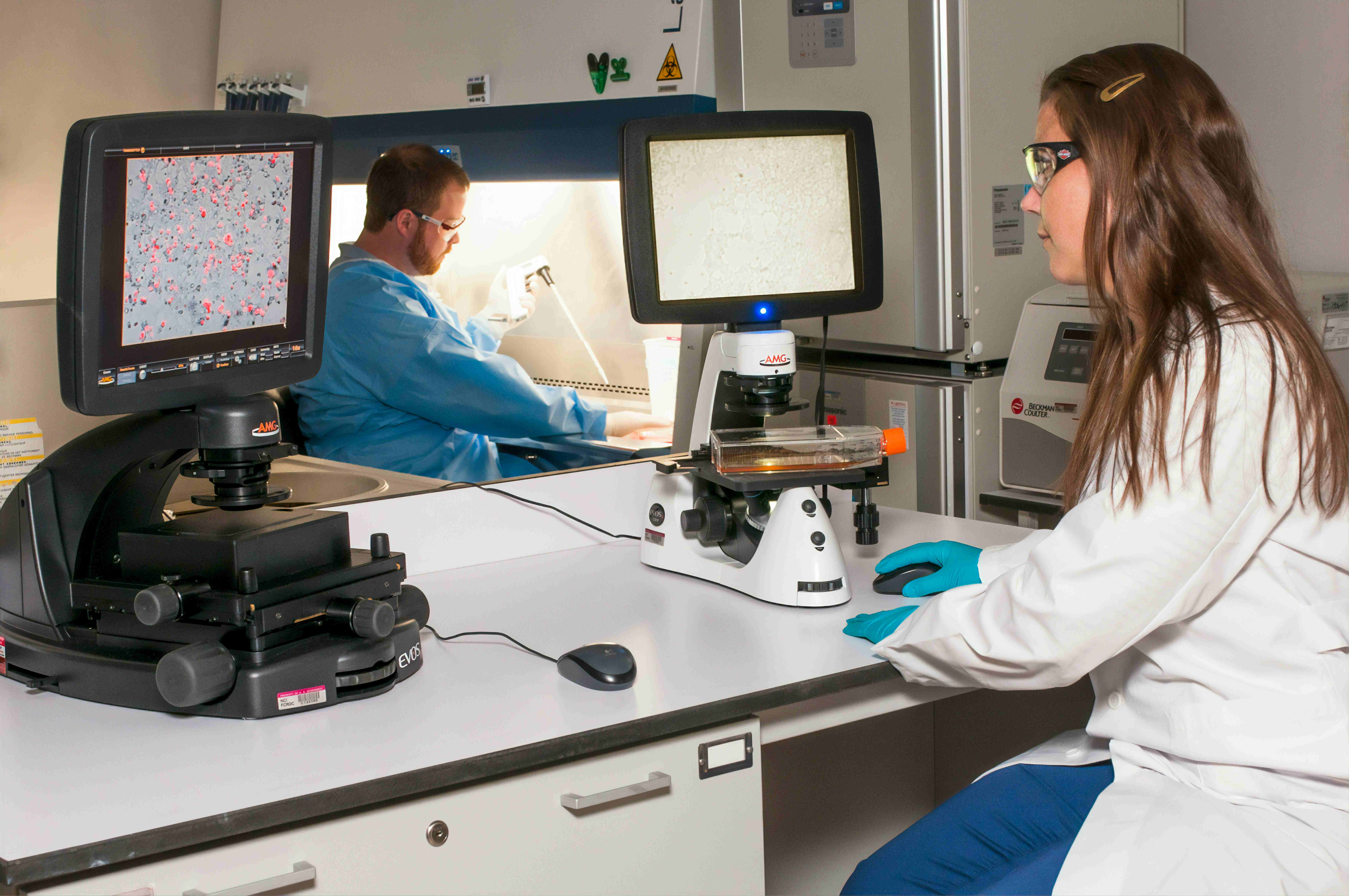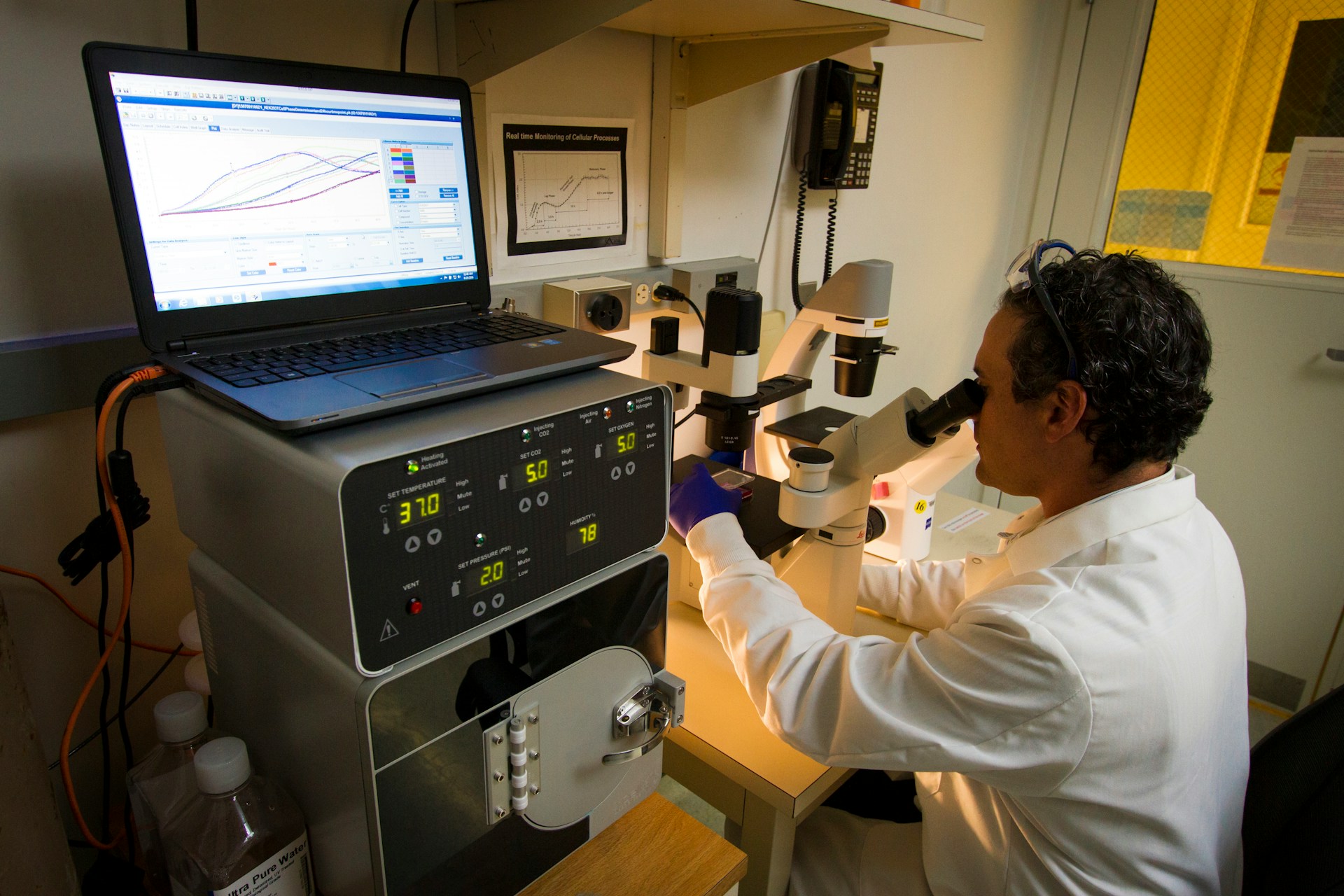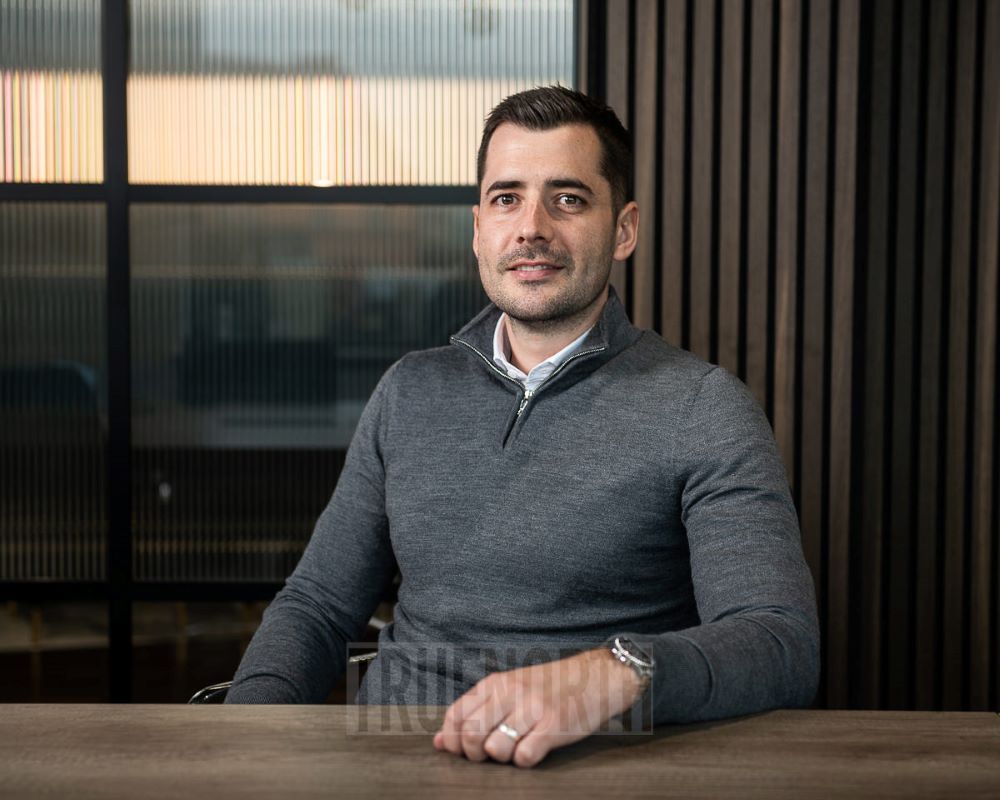
How To Reduce Staff Turnover In The Medical Devices Industry
14 Dec, 202310 minutesThe healthcare landscape is undergoing a transformation driven by innovative medical device ...

The healthcare landscape is undergoing a transformation driven by innovative medical device technologies. Technological advancements, including AI-optimized devices, wearable medtech devices, and 5G data transfer, are shaping the current evolution of the sector. This increased innovation requires a substantial number of skilled professionals to deal with the complexity of medical devices and support the future of healthcare globally.
The medical device industry's growth will be determined by the success of its talent in designing, engineering, and coordinating these technologies. With staff turnover being a challenge for the medical industry, aiming to retain as many experienced professionals as possible will be critical to the business's and the sector's prosperity.
In this guide, we’ll explore the importance of staff retention in a critical industry, highlight the leading causes of employee turnover in medtech, and discuss our top strategies to encourage job stability.
Why Retention Matters For the Medtech Industry
Productive employees are the key to successful development. The medical devices industry can be an incredibly rewarding sector for skilled professionals to contribute to and advance in. Increasing developments in medtech and the advancement of medical devices have elevated industry growth predictions to a 5.2% annual growth rate from 2022 to 2030.
The future progress and ever-evolving medical diagnosis and treatment landscape depends on qualified and creative individuals who participate in the design, development, manufacturing, and sales of medical devices. Medical device recruitment and retention are more critical than ever to keep up with the demand for future advancements and medical success.
What Causes an Increase in Staff Turnover?
No matter the industry, every organisation strives to create and retain a strong team of talented professionals to elevate business practices. The medical devices industry is no different. Due to the evolving nature and advancements of the technology sector, medtech businesses need to establish a solid team foundation to remain at the forefront of industry development.
Employees usually have a wide range of reasons for leaving an organisation. While some factors, like personal or family issues, may not be preventable from a management perspective, others, like employee burnout, insufficient growth, and lack of staff benefits, are usually avoidable.
Continued loss of talented professionals can completely disrupt the complex medical device development process. Avoidable issues within the workplace are prevalent, with up to 52% of former employees believing their previous organisation could have prevented their departure.
Reasons for a high staff turnover include:
- Generally low workplace morale
- Poorly paid staff
- Limited or no benefits packages
- Infrequent performance evaluations
- Lack of work-life balance
- Poor company culture or company morales
- Lack of working flexibility for disabilities, health conditions, and mental health issues
- Limited or undetailed onboarding and training procedures
- General employee burnout
- Poorly structured management teams or no chain of command in hierarchal business structures
The Cost of A High Staff Turnover Rate
An organisation with a high staff turnover rate, struggling to retain talented professionals, will be subject to various associated costs. For medtech businesses and employers, increased expenses, decreased product development, and low overall workplace productivity is frequent. According to a recent study, the financial cost of replacing an employee equals six to nine months of that employee's annual salary, not considering any loss in profitability due to their absence.
The continued loss of qualified employees can bring more than financial burdens. These consist of:
- The time spent locating qualified professionals
- The recruitment and onboarding time and expenses
- Hindered organisational development
- The loss of revenue
- A potential decrease in team morale
These preventable costs can result in drastic issues for a medical device organisation. To avoid this, several business areas must be invested in to ensure staff retention.
Top Strategies To Ensure Employee Retention

To remain competitive and innovative in a competitive environment, medical device companies need to build a solid workforce. Time spent investing in employees is better spent than using resources to replace team members continuously. A well-organised and committed team of employees will encourage growth and consistently commit to developing medical devices.
Figuring out the best techniques to invoke and the main areas to invest in to ensure staff retention can feel overwhelming. To assist medical device businesses, we have put together our top strategies to reduce staff turnover.
Why Medical Devices and Why this Organisation?
Everyone possesses unique reasoning that drives their choice of a specific sector or company. Potential employees are drawn to certain companies and industries based on their personal career goals and values. Depending on the person, a company or sector's commitment to innovation may prove more of a deciding factor than their focus on social responsibility or vice versa.
The medical devices industry itself is a primary motivator to join a company that specialises in this. Employees have different reasons to work in the sector and company, from using and creating innovative technology to positively impacting healthcare and changing lives. Identifying and tapping these motivations is critical to fostering an engaged employee base and lowering staff turnover.
Motivations can change depending on several factors, including the financial climate, an individual’s values, and career goals. Keeping up-to-date with influences that may affect an employee's desire to remain in their current jobs is critical to decreasing staff turnover.
Company Culture
Medical device jobs are usually demanding positions filled with high expectations and deadlines. This is before factoring in the stresses of a potentially harmful company culture. Workplace culture plays a vital role in influencing staff turnover rates. A positive and inclusive culture contributes to employee engagement, satisfaction, and long-term commitment to the organisation.
Culture can encompass multiple areas, including organisational values, team and management dynamics, and overall employee experience. A positive workplace culture is essential in creating a solid and innovative team invested in the business. Advertising a positive, inclusive and diverse company culture to potential employees will benefit an organisation if the environment reflects this.
What does a positive company culture look like?
- Clear missions and values that echo throughout the organisation
- Valuing diversity, equity, and inclusion
- Trusting and respecting all colleagues and management
- Recognition and appreciation for employees’ successes
- Encouraging open communication
- Supportive leadership
- Investing in and developing employees
- A safe and positive physical environment
A strong and positive culture can significantly incentivise staff to join an organisation. Staff turnover is more than three times as likely in organisations that don’t have a strong company culture.
Investing in company culture and reflecting this throughout the organisation will encourage employees to be more committed and aligned with the company's mission, resulting in increased productivity, higher job satisfaction, and a lower likelihood of turnover.
Mental Health
The increase in mental health conditions in the last two decades has increased the need for reasonable adjustments in the workplace. The cost of staff turnover increased in the previous three years by 150% due to staff members with poor mental health. If mental health in any organisation is ignored, there can be severe repercussions for business activity.
The medical device industry can be a pressured environment. Skilled professionals in this sector suffering from poor mental well-being and no support from their employers will no doubt seek other opportunities. Any modern, successful organisation that strives for success must recognise the connection between mental health and employee turnover.
In terms of future talent, Gen Z actively searches for employers who provide education on mental health issues and aim to provide flexibility and support for mental health in the workplace. Creating a supportive and considerate environment is and will be essential in retaining current and future talent in the medical devices industry.
There are several simple ways that mental health can be supported in the workplace to improve staff’s relationship with work. These include:
- Educating all staff and the company as a whole about mental health matters
- Offering flexible working policies
- Offering guidance and support to employees
- Providing resources like employee assistance programs
- Encouraging mental wellbeing by offering a quiet room, mental health days and physical activity
- Promoting a safe environment in the workplace
Competitive Salary and Benefits
The current financial climate has left most workers with the need to seek positions that offer a higher salary and other appealing benefits. The connection between competitive wages, work benefits, and staff turnover is proven. Employee satisfaction and overall job commitment increase when the workforce is correctly valued and compensated. Medical device professionals who have studied, trained, and developed will rightly seek the appropriate salary for their skills.
Remain updated on the latest medical device staff salaries, eliminate pay disparity in similar roles, and provide regular salary reviews to keep pace with the competition. Providing other incentives, such as private health insurance, pension plans, wellness programs, employee discounts, and flexible working options, are also incredibly appealing in the medtech industry.
As medical device recruitment becomes more competitive, medtech organisations must be able to offer competitive salaries and other benefits and incentives to ensure talent retention.
Maximise Development and Growth Opportunities
Most skilled professionals search for jobs that will challenge them and assist their career development. In the medical devices industry, professionals will desire to maximise their potential and contribute meaningfully to this dynamic industry. In fact, over 68% of employees have altered their jobs due to a lack of development and training opportunities.
The medical devices industry demands a continuous commitment to growth due to the constant development of new technologies. Without organisational training and developmental support, organisations will fail to compete with other businesses whose employees are up-to-date. Employees may also seek more fulfilling opportunities that they are not receiving if they feel more training and investments would be beneficial in their careers.
Increase Training Opportunities and Encourage Development Plans
Staff turnover will decrease if a workforce is happy with their level of development. According to a recent survey of ex-employees, 94% said they would have remained at their previous organisation if there had been a proven investment in their long-term learning.
While training new employees during onboarding is essential to the short-term success of the individual, a developing field requires regular training periods. If a workforce feels consistently invested, they will be more engaged in business activities. Talk to employees about plans for advancement regularly and assist in making this possible to foster a culture of continuous growth. By ensuring ongoing opportunities for career development, job satisfaction increases, and staff turnover decreases.
Avoid Employee Burnout
A significant aspect of employee retention is ensuring staff are not overloaded and feel fulfilled in their careers. There is a strong relationship between employee burnout, turnover, and job satisfaction, with over half of the annual workforce turnover being accredited to employee burnout, especially in larger organisations.
While the medtech industry is currently developing virtual technology that aims to combat clinician burnout, medical device employees are still at risk of burnout. Burnout can be attributed to many factors, including:
- A lack of work-life balance
- Becoming overworked
- A lack or decrease in workplace support
- A Negative Organisational Culture in the workplace
- Job insecurity
- A lack of flexible working hours or work-from-home opportunities
- Limited career engagement
Employee burnout not only affects staff. Unfortunately, in most cases, organisations that continuously subject employees to the factors above are at high risk of increasing staff turnover, leading to various workloads and financial issues.
Promote a work-life balance
A lack of a work-life balance is the main reason behind employee burnout. With more value placed upon having a life away from work and increasing commitments, employees are actively searching for flexible positions.
Flexible working can look different for each organisation and sector in the medical devices industry. Hybrid working is currently a significant factor in job searches for many potential employees, but due to the inability to fulfil several job roles from home, like engineering and manufacturing, many organisations must provide other flexibilities. These may include flexible shift patterns or simply working within the set hours.
Showing medical device employees that their time is valuable by being as flexible as possible with their schedules and respecting their personal commitments will incentivise them to remain.
Hire Enough Staff
The need for more trained staff in medical device jobs can also affect staff turnover. A lack of qualified employees in a growing sector may cause the current workforce to become overwhelmed and work beyond their capacity. Organisations in the medical devices industry that fail to distribute workloads across the employee base correctly may cause employee burnout and illness.
While the creative individuals in the medtech industry are known for their passion for innovation, organisations can negatively affect their motivation by elevating workloads rather than employing the appropriate number of staff reflective of industry growth. This has the potential to lead to a mass number of resignations.
Ensuring medical device sector employees do not work beyond their capacity is a simple method of decreasing employee turnover.
Standardise Regular Performance Reviews
While trying to stay up-to-date with regular performance reviews in the fast-paced medical devices industry, maintaining staff involvement is essential. Taking the time for a dedicated meeting with each employee to establish their progress and any relevant struggles or grievances allows for their feelings surrounding their current job to be addressed.
Timely reviews allow management to keep updated with project progress and engage with employees to determine their feelings concerning the workplace. Keeping reviews one-on-one will allow more reserved staff to contact for support or air grievances. These are conversations that individuals may not participate in during a group setting.
Regular reviews can ensure that staff members in a high-stress medtech field don’t seek other opportunities that may offer more benefits. Determining issues and working through them together reduces the risk of employees searching for positions that offer higher salaries, more work flexibility, or better communication between staff and employers.
Reward and Praise Employees
Working in the medical devices industry requires high creativity, dedication, and focus. Staff members who received regular employer recognition for their work and progress are eight times more engaged. A workforce engaged with the organisation and their work is less likely to seek other opportunities.
Appreciation for employees can be easier than it may appear. Examples of how to recognise employee successes include:
- Weekly or monthly employee shoutouts on email or team meetings
- Regular out-of-work social events
- Social media praise
- Occasional gifts
- Raises or bonuses for employees showing continued improvement or success
- Yearly award ceremonies
Expressing praise or recognition for employees demonstrates that an organisation values its employees and underscores the essential role that employees play in the company's development.
Managing Medical Devices Staff Turnover: Key Insights
Reducing staff turnover in the medical devices industry is crucial for individual businesses' success and healthcare advancement globally. As the industry experiences unprecedented growth and innovation, the retention of skilled professionals is imperative.
The medical devices industry relies heavily on the dedication and expertise of its workforce to drive advancements in technology and contribute to the evolution of healthcare. Supporting staff development and fostering a supportive working environment that adopts an open dialogue culture are critical aspects of a comprehensive retention strategy.
The proposed strategies in this guide all focus on implementing a positive and employee-friendly working environment. A business adopting these approaches, in line with personal business capacity and resources, will increase the satisfaction and well-being of its workforce. Elevating policies in this area will undoubtedly contribute to a decrease in staff turnover.
Providing Expert Medical Device Recruitment
We are committed to connecting medical technology companies with the brightest talent globally. Our award-winning specialist consultants provide tailored support to our clients in line with their medical device recruitment needs, assisting in the innovation and development of the industry.
Contact us today to understand how our global network and varied specialisms can help your business achieve its talent goals.


